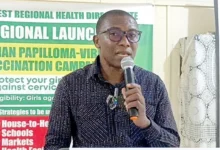
Ghana’s journey to providing potable water to all is far from over despite the significant strides made in improving water services across the country, President Nana Addo Dankwa Akufo-Addo, has said.
According to him, the last seven year’s under his administration had seen some significant investments in the area of water provision with tangible evidence of progress, however, there still remained a lot more to be done.
“Despite the challenges we have faced, we have made notable interventions and achieved significant milestones. In the last seven and a half years, we have successfully expanded access to clean water in both rural and underserved urban areas. Today, more of our citizens have access to reliable sources of clean drinking water thanks to the construction and rehabilitation of water treatment facilities across the nation,” he said.
President Akufo-Addo said this at signing of the Presidential Compact on Water, Sanitation, and Hygiene (WASH) at the Jubilee House in Accra on Wednesday.
The WASH Compact is a strategic multi-stakeholder partnership agreement that seeks to foster inclusive development and safeguard public health, while also advancing broader socio-economic objectives.
It embodies the principles of addressing the critical gaps in access to clean water, adequate sanitation, and hygiene services.
President Akufo-Addo said the signing of the presidential compact was built on the fundamental truth that without these basic services, sustainable development would remain an elusive dream.
He explained that Presidential Compact was a historic step in the pursuit of universal access to clean water, adequate sanitation and hygiene for all, stressing that “government’s agenda for water and sanitation for all has not been empty rhetoric.”
President Akufo-Addo noted that as a result of the investments made by his government, citizens have access to reliable sources of clean drinking water, adding that “consequently, the time women and children spend fetching water has been dramatically reduced, allowing them to focus on education and economic activities.
On the matter of sanitation, he said the vision to eliminate open defecation had seen remarkable progress.
He said resilient household toilets had been constructed with several liquid waste treatment plants having been established to ensure the safe management of liquid, solid and medical waste nationwide.
“Since 2017, in collaboration with our partners, the Akufo-Addo government has constructed some 250,000 household toilets to improve sanitation across the country. To manage liquid waste effectively, three treatment plants, each with a capacity of 1,000 cubic meters, have been built in Kumasi, Tamale and Takoradi in partnership with the private sector to treat faecal matter,” he emphasised.
Additionally, he said two sewage systems with a total capacity of 2,400 cubic meters per day had been constructed in Ashaiman-Newtown and Bankuman within the Tema metropolitan area, benefiting some 44,500 residents of low-income urban communities.
The Director/Representative of the United Nations Office for Project Services (UNOPS), Dr Ifeoma Charles-Monwuba on his part, said the signing of the compact was not only a commitment of President Akufo-Addo to accelerate progress on Sustainable Development Goals (SDG) 6.1 which talked about universal access to water and sanitation for Ghana by 2030, but also a demonstration of true love to his motherland.
She said it was evidence of the president’s sincere effort to improve the wellbeing of fellow Ghanaians, adding that “It also aligns seamlessly with the priorities of the United Nations Sustainable Development Cooperation Framework (UNSDCF) for Ghana 2023-2025 and the priorities of the Development Cooperation Community.”
Dr Charles-Monwuba said the WASH Compact emphasised the importance of robust governance frameworks and enhanced coordination among various sectors.
“The Government of Ghana’s leadership in fostering these frameworks is commendable. By integrating WASH priorities into national policies and ensuring accountability through clear monitoring and evaluation mechanisms, this compact will significantly enhance the efficiency and effectiveness of service delivery across the country,” she emphasised.
BY CLIFF EKUFUL







